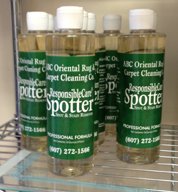COVID-19 FAQs UPDATE
As we head into another month of isolation (May of 2020) and uncertainty and as we learn more about the COVID-19 pandemic and how it is spread, we find we are beginning to get answers to some of our most pressing questions as more scientific data becomes available.
We have included answers from reliable sources to some of these questions with the caveat that as data does become more available the answers are subject to change.
Can My Pet Become Infected
With the Virus?
On April 22, 2020, the CDC, the USDA, and the NVSL (National Veterinary Services Laboratories) announced the first confirmed cases of the SARS-CoV-2 (COVID-19 virus) infection in 2 pet cats.The 2 cats had only mild respiratory illness and are expected to make a full recovery. They live in 2 separate areas of New York State. This was the first evidence in the US in which a household pet had been infected.
It is interesting to note that in the home of the first cat tested, no one in the household was confirmed to have COVID-19. It is possible the virus may have been transmitted to the cat by an asymptomatic individual in the home or one who was mildly ill or perhaps through contact with an infected person outside the home.
The owner of the second cat had tested positive for COVID-19 before the cat was
tested. There was another cat in the home but it has shown no signs of illness.
The only other 2 animals in the US reported to have COVID-19 are a
tiger on April 4th and a lion on April 15th. There have
been a few animals in other parts of the world infected, but they were known to have had
close contact with someone with COVID-19.
Can My Pet Transmit the Infection to Me Or To Other Pets Or To Members of My Household Or To Other Animals?
At this point in time, there is no evidence that pets play any role in spreading the virus in the US. Routine testing of animals is not recommended at this time, especially because the welfare of companion animals may be compromised. There is simply not enough data yet. You can check for confirmed cases of animals with tested for COVID-19 on this site from the USDA.
Until more data is available, the CDC recommends the following:
- Do not let pets interact with people or other animals outside the household.
- Keep cats indoors when possible to prevent them from interacting with other animals or people.
- Walk dogs on a leash, maintaining at least 6 feet from other people and animals.
- Avoid dog parks or public places where a large number of people and dogs gather.
- If you are sick with COVID-19 (either suspected or confirmed by a test), restrict contact with your pets and other animals, just like you would around other people. Avoid contact with your pet, including petting, snuggling, being kissed or licked, and sharing food or bedding. There may be a possibility that coronavirus droplets from a cough or sneeze could remain on the fur of pets for a period of time.
- When possible, have another member of your household care for your pets while you are sick.
- If you must care for your pet or be around animals while you are sick, wear a cloth face covering and wash your hands before and after you interact with them.
Should I Not Let My Dog Lick My Hands After I Use Sanitizer?
There is a false warning making the rounds that sanitizer has the same ingredients as antifreeze which is toxic to dogs. So you should not let dogs lick your hands. Not true!
The misconception comes from the misunderstanding of the properties of 2 chemicals, propylene glycol and ethyl glycol.
Propylene glycol is used in sanitizers to hold in moisture to prevent the hands from drying out. It is also found in some antifreeze. This is when it replaces ethylene glycol, the usual active ingredient, to make the antifreeze more environmentally friendly and to lower its general toxicity.
Ethylene glycol is indeed toxic to dogs as well as to humans. Propylene glycol is not at all toxic. The extra carbon atom in propylene glycol is why this is the case.
Thus, no worries about your dog licking your hands after you have used sanitizer. It may be more important to know what your dog had been licking before he or she licked your hands!
Is It Safe To Go To
The Grocery Store?
The short answer is to try to minimize visits to any store because of the risk of being around other people.
Try to maintain at least a 3 to 6 foot buffer around yourself and others.
Use self-checkout when possible and hand sanitizer when you are finished.
Wash your hands with soap and water as soon as possible.
Are Masks and/or Gloves Necessary at the Grocery Store or any Store?
A big change has happened in regard to using face masks in any public place such as a grocery store. In many areas, they are required.
The CDC does not recommend wearing N95 respirator masks or surgical masks, as these must be reserved for the shortage of protective equipment facing health care workers.
We have all been cautioned that the wearing of cloth masks is not for our own protection but to protect others from us should we cough or sneeze or be without any symptoms but still be able to spread the virus.
Gloves are another matter. They will not help if you touch your eyes, nose
or mouth with them. If you do use gloves, make sure they are disposable and
throw them away before getting into your car or as soon as you get home. Make sure to wash your hands with soap and water as soon as possible after you take your gloves off.
In reality, you probably do not need gloves as long as you wash your hands before and after your trip and don't touch your face with your hands.
If you need to use your phone in the store, make sure to clean it when you get home.
Are Disinfectant Wipes Necessary When Leaving the Home and If So, What Do We Use Them For?
At this time, many grocery and other stores that may be open are wiping down carts or providing shoppers with wipes.
It might be a good idea to keep a container of wipes with you in your car when going out.
If taken into a store, they can be used to wipe down high-touch areas such as freezer handles, etc.
What About Using Cash, Checks, or Credit Cards in a Store?
Always use a credit-card reader, if possible. Avoid exchanging money or credit cards with the cashier.
Should Seniors, Especially Those With Underlying Medical Conditions, Shop During Special Senior Hours?
People over 65 or those with underlying medical conditions should avoid going to any store, if possible. Have a family member or friend deliver grocery items for you. If you must go to the store, it will be less likely to be crowded during the special senior hours.
Can I Get the Coronavirus From Paper and Plastic Bags and Cardboard?
The latest information is that the virus can live on cardboard for up to 24 hours and on hard surfaces such as plastic and stainless steel for 2 to 3 days. There have been no documented cases of COVID-19 through food packaging, however. It must be understood that most studies are done in a lab with high doses of the virus. We don’t really know the answers here.
There are currently no studies on paper or plastic bags, though it might be a good idea to discard them and wash your hands afterwards.
Experts say wiping down cereal boxes and other packages is not really necessary. This is because if you are home, you can easily wash your hands after touching these items.
Some recommendations are to leave non-perishable items outside the home for 3 days before using them if you are still concerned about coronavirus transmission through packaging.
Can I Get COVID-19 From Food?
Scientists are pretty certain that respiratory viruses enter the body and reproduce through the respiratory tract, not the digestive tract. However, your mouth is a gateway to both your respiratory system and your digestive system. If the virus comes from an object that rubs off on the inside of your mouth it could infect you if it goes into your respiratory system.
If virus particles are on food, perhaps because someone who handled the food didn't wash well after going to the bathroom or has coughed or sneezed on the food, and then you touch your nose, eyes or mouth, you could potentially contract the virus, even though experts think it is very unlikely. The best way to protect yourself would be to thoroughly wash your hands with soap and water and do not eat your food with your hands, if possible.
Since studying this virus is a continuing process, it is possible that this answer could be one of those subject to change. However, at this time, doctors believe it is unlikely the virus can be transmitted through ingestion of contaminated food.
If you would like to be extra cautious, food could be heated in the oven or microwave, though it is unclear how much time would be needed.
Do Raw Fruits and Vegetables Need To Be Washed Or Wiped Down?
Fruits and vegetables should not be wiped down with sanitizing wipes because the chemicals in them and chlorine solutions should not be ingested.
Simply wash your fruits and veggies with water or baking soda or vinegar solutions as can be found here.
What About My clothes? Will They Be Contaminated After Going to a Store? Should I Change My Clothes and Wash The Worn Ones As Soon As I Get Home?
Whether or not the virus can be transmitted through clothing is still being studied. We do know the virus can be killed by doing laundry.
You may want to change your clothes if you were near people who were coughing. Just be sure not to shake the clothing, place it in your laundry hamper, wash in the warmest possible setting, and dry thoroughly.
The CDC states you can wash an infected person's clothes with those of someone not ill, using regular laundry detergent as above.
You can clean and disinfect clothes hampers using an EPA-registered household disinfectant.
A Message From ABC
Over the last 50 years, it has been our pleasure to have helped you and the rest of our community stay healthy as we cleaned and protected the items in your homes and businesses.
We sincerely hope you are taking care and staying well during this pandemic. If there is anything we can do for you, you are welcome to call or text our office at 607-272-1566. Please know we are concerned about you and thinking of you and your families. We will continue to monitor information about COVID-19 for your information.
Be well. Stay safe.
Thank you.
"The Cleanest Clean You've Ever Seen."
by
ABC Oriental Rug & Carpet Cleaning Co.
130 Cecil Malone Drive Ithaca, NY 14850
607-272-1566
ABC Oriental Rug is on Facebook!
We regularly post tips and information about your carpet, rugs, upholstery, and tile and grout so please visit us often.
We update our Facebook page with our latest discounts and we are also offering exclusive promotions to our Facebook fans. These are limited and short notice promotions.
When you like our page, you will also be able to claim your special gift from us!
"Like Us"
on Facebook
and find out
what's going on!
Did you know that our ABC Responsible Care Spotter can get those pesky spots out of your carpet and will work equally as well on your clothes and upholstery?
Stop by our office and pick one up. They are $5.00 + Tax but if you have carpets or upholstery cleaned in your home or business, just request a free one from your Technician.
And don't forget to fill out the form above to download your free ABC Spotting Guide!


